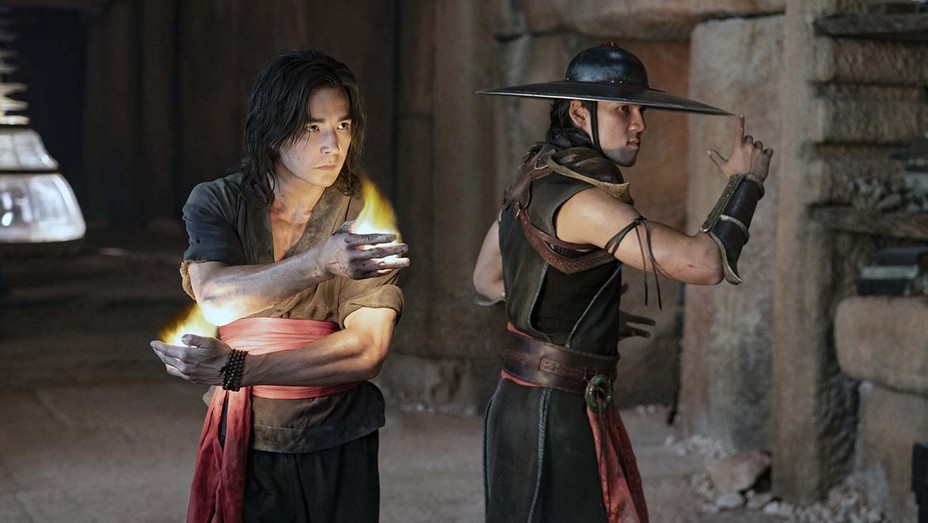Can ‘Mortal Kombat’ help to break the video game movie curse?
The new 'Mortal Kombat' movie has audiences so hyped that the video game movie curse could be broken.

This month sees the release of Mortal Kombat, the latest adaptation of the classic video game franchise that helped to make fighting games both iconic and infamous. Notably for an adaptation of a game, audience expectations for Mortal Kombat are pretty high. There seems to be genuine excitement over a video game movie in a way that feels rare for the medium. Indeed, it doesn’t seem all that shocking that this film could possibly be good.
Video games have proven to be a curiously confounding concept for many a person over the past 40 or so years since they became a dominant form of entertainment. Roger Ebert insisted they could never be art. They’re consistently used as a scapegoat for the world’s ills. Hollywood has never entirely known what to do with them, despite the seemingly obvious potential of the medium. Every time an announcement was made that a certain game had been greenlit for a big-screen transfer, it seemed wearily inevitable that the final product would sit somewhere between mediocre and legendary trainwreck. For many, when they think of video game movies, what comes to mind are films like the hilariously misguided Super Mario Bros. adaptation or the middling Tomb Raider films that, at the very least, were impeccably cast. While video games don’t have quite the head start of literature or theater for the purposes of cinematic adaptation, the ratio of good versus bad in terms of quality is glaringly unbalanced.
Video games are unique for their participatory nature. It’s that rare artform wherein the audience controls the narrative (at least to some degree.) Games have also gotten more ambitious and expansive over the decades, encompassing dozens, even hundreds of hours of gameplay and beyond. Yet many of the most iconic games are elegant in their simplicity. It’s the medium that really has the potential to do it all: epic fantastical sagas; intimate dramas with a handful of characters; metatextual examinations of the form itself; technicolor silliness or grimdark nihilism. A game is what the player makes it, and while it has proven to be a medium as limitless for auteur-style creators as film, the relationship between maker and consumer is a far more malleable one.
That’s a tough nut to crack when it comes to a movie adaptation. The studio or director often finds themselves swirling amid a series of Catch-22 decisions. Well, surely you can’t make a feature length film from a story of a happy plumber jumping down pipes and bouncing off turtles, so the only way Super Mario Bros. gets to be a movie is by radically altering the narrative into an unrecognizable Blade Runner wannabe. There isn’t really a narrative in the Need for Speed games (a deliberate choice so that the focus is on the driving mechanics) so one must be added, but when there’s no story to work from in the first place, what would make it a uniquely Need for Speed adaptation? OK, but how about putting the audience in that first-person viewpoint like the game? Doom tried it for one fun scene but once it moved back into a traditional plot, it stopped feeling like Doom.
2016's Assassin's Creed tried to stick as closely to its convoluted storyline as possible, but that overlooked why it existed in the first place. In the games, it makes sense that you can't go to certain areas and that all of these disparate timelines exist in one overriding arc because the medium of gaming allows that. It makes sense to play something, have your character die, then jump back to the modern world so you can start the mission afresh. That simply doesn't work in a film. It feels unnecessarily complex in a way that cinematic narratives have no understanding of. Translating the unique allure of gaming mechanics to a non-participatory medium seems doomed to fail.
There have been small but crucial improvements in the genre over the past few years. Scott Pilgrim vs. the World may technically not be an adaptation of a video game (it’s based on a comic book series), its aesthetic and narrative inspirations are rooted in the medium in a way that film hadn’t really played around with before. Warcraft proved impenetrable to novices but fans of the MMO heralded Duncan Jones’s epic as a lovingly detailed and stridently faithful translation of the game’s lore. Even Sonic the Hedgehog, which has a number of problems and is only loosely connected to the games it’s technically based on, won over more people than expected, and the movie was the sixth highest-grossing title of 2020. This trio of titles could not be more different from one another, both in terms of source material and the final product, but they all succeeded on their own terms, and that’s more than we can say for a lot of their video game movie predecessors.
What seems most encouraging about Mortal Kombat is that it actually looks like it’s based on the games. The 1995 film by Paul W.S. Anderson has received a critical evaluation over the past few years for its adherence to the source material but even that one seriously clamped down the bloodiness that made the games so unique. The follow-up, 1997's Mortal Kombat: Annihilation, is almost hilariously bad, more ineptly executed camp than ferocious martial arts extravaganza. The 2021 reboot is proudly gory and rooted in the often gut-churning chaos that makes the games so playable, and that in and of itself feels like a breakthrough given what came before it.
The latest updates, reviews and unmissable series to watch and more!
Hollywood has deliberately limited itself in terms of the video games it wants to adapt. It’s stayed far away from smaller, quirkier games that could be well suited to film, like Gone Home or Oxenfree. It’s always proven somewhat baffling that none of the beloved ‘90s point-and-click adventure games made their way to a studio executive’s desk. The focus is still on the big AAA titles, although upcoming adaptations do inspire some hope. Uncharted is finally making its way to cinemas, albeit as a young Nathan Drake prequel starring Tom Holland, and The Last of Us, one of the true masterpieces of the century, will become an HBO series with Pedro Pascal in the lead. After many decades of impatient waiting, it finally feels like video game movies have a bright future. Like any great game, the ending may see the curse finally broken.
Kayleigh is a pop culture writer and critic based in Dundee, Scotland. Her work can be found on Pajiba, IGN, Uproxx, RogerEbert.com, SlashFilm, and WhatToWatch, among other places. She's also the creator of the newsletter The Gossip Reading Club.


